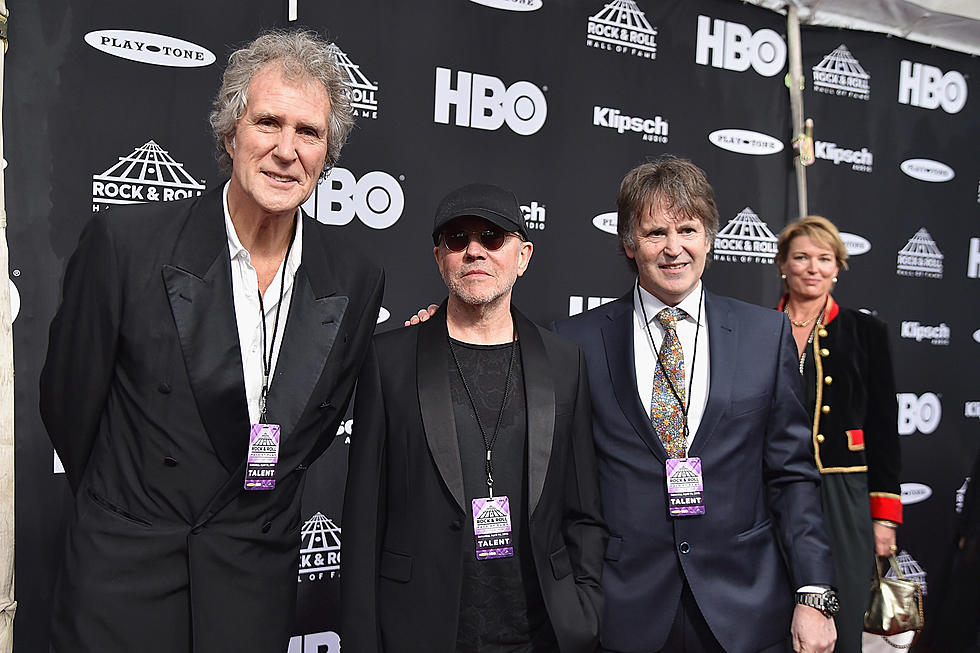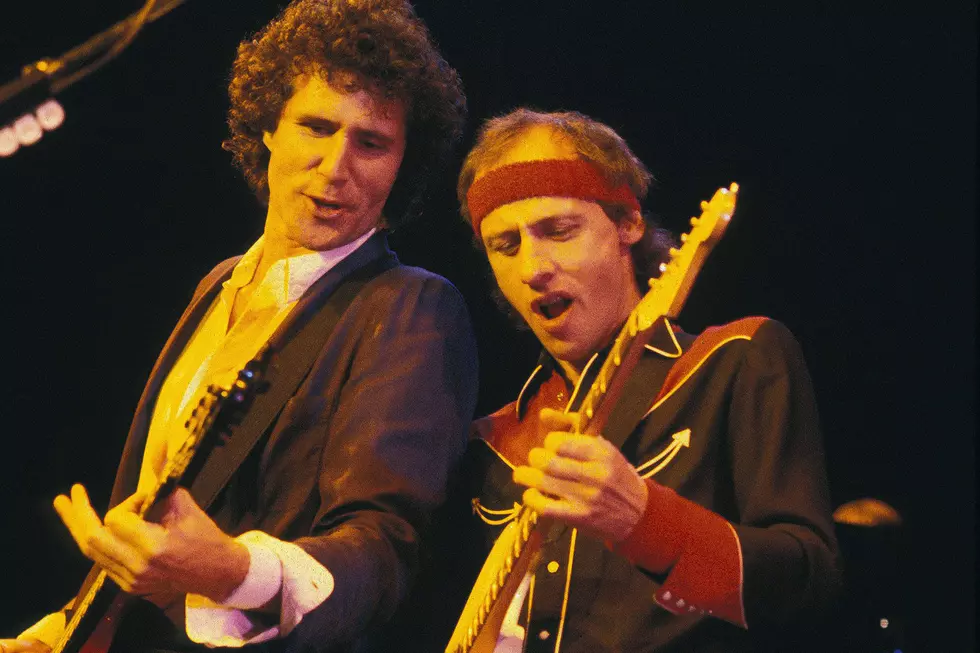
How a Slow-Building Debut Eventually Vindicated Dire Straits
The '60s, '70s and '80s are full of stories about bands that limped along for years, touring hard and testing their labels' patience before finally getting their big break. Given their low-key music and resolute lack of visual flash, the guys in Dire Straits seemed like good candidates for one of those slow-building careers – and unlikely candidates for mainstream pop stardom.
Initially, it looked like the band's self-titled debut, released on Oct. 7, 1978, might be destined for cult status: In spite of a spate of positive reviews, sales for Dire Straits didn't ignite right away – especially in the U.S., where the record's big single, "Sultans of Swing," took more than five months to really start taking off. In the meantime, Dire Straits were busy touring across Europe, where audiences greeted them with more immediate enthusiasm, especially in Australia and the U.K. Eventually, record buyers on both sides of the Atlantic caught up with the band, and by the end of 1979, they'd graced the upper reaches of album charts worldwide while sending "Sultans of Swing" to the Top 5 in the U.S.
It served as sweet vindication for a group whose pronounced financial poverty helped inspire its tongue-in-cheek name, and particularly for frontman Mark Knopfler, whose pursuit of a career in music took him through a divorce and a lot of late nights slogging through pub gigs while paying the bills as a teacher.
"I was wandering all through the country," recalled Knopfler in a 1979 interview. "Taking all sorts of jobs – working in warehouses and offices – and my musical career was going nowhere. I finally got a job teaching English in a college, which I was delighted to have because it proved to be a real steadying influence. There happened to be guitar classes at the college, and there was a guitar teacher there with whom I used to play. In addition, I also would go out into country schools and teach little kids basic guitar and singing a few times a week."
Knopfler's blue-collar existence helped inform the characters in his songs, as well as the band's lineup. Although he'd been steadily gigging for years, Dire Straits didn't really begin to coalesce until Knopfler moved into a flat with his brother (and fellow guitarist) David, who was already sharing a place with bassist John Illsley. Once the trio recruited drummer Pick Withers to round out the band in 1977, they were off and running, recording a five-song demo in early 1978 and managing to get the tape – which included "Sultans of Swing" – into the hands of influential BBC disc jockey Charlie Gillett, whose early support helped spark the interest of the group's U.K. label, Phonograph Records.
In retrospect, it's easy to hear what attracted Gillett and Phonograph execs to Dire Straits, but it's also important to acknowledge that the band's sound was entirely out of step with everything else that was going on in rock during the late '70s. Though Knopfler's distinctive lead guitar was often the focal point of the music, his playing resisted big hooks and flashy solos, and Muff Winwood's clean production on Dire Straits was the antithesis of the rawer, heavier sound that was popular with a lot of younger acts. Neither punk nor disco, glam nor metal, Dire Straits existed in a part of the musical landscape all its own.
Ultimately, that's a big part of what made Dire Straits such a draw for its widening circle of fans, and helped turn the band into one of the more unlikely arena-filling rock groups of the '80s and early '90s. But even at their biggest, their music never lost its quiet, contemplative heart – one that listeners heard loud and clear on Dire Straits, and which hasn't lost any of its power.
Top 100 Live Albums
More From 100.7 KOOL FM










